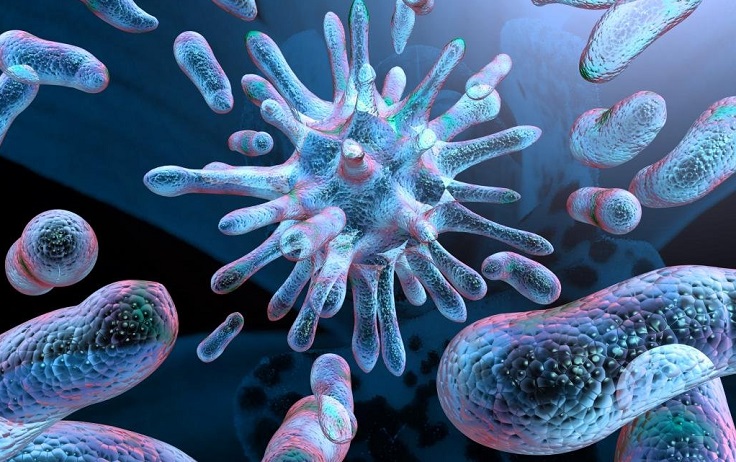Already with the very word "bacteria", a picture of hostility is mechanically loomed in my head. But let's analyze whether they are really so unpleasant and bad!
Contents
- Bacteria: what are - important facts about them
- Forms of bacteria
- Bacteria and their significance in human life
- Bacteria and their benefits for human health
- Harmful bacteria
- Useful bacteria in the household
- Nodule bacteria
- Popular forms of bacteria: bacilli, coks and spirals
- Pathogenic (pathogenic) bacteria in human life
- Bacteria play an important role in nature!
- Video: bacteria their role in our life
Bacteria is the simplest life form on our planet. There is a fundamental difference between them and other cells. Unlike organisms, such as algae, mushrooms, plants, animals and people, bacteria does not have a core. But it is worth knowing that they are still distinguished from other forms of life, while raising important and useful “missions” on Earth.
Bacteria: what are - important facts about them
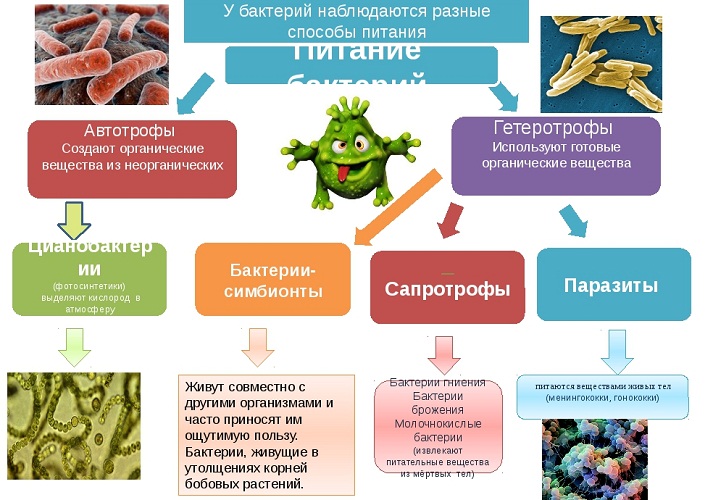
These are microscopic, unicellular, Prokaryotic organisms, Without a specific nucleus that propagate asexually. That is, dividing into two parts, when one cell is simply divided into two.
They are found separately or in cell colonies. Bacteria are divided into two main groups based on the structure of the cell wall, which can be determined using a simple staining procedure called staining in gram.
Forms of bacteria
Bacteria are divided into 5 groups in the main forms:
- spherical (Kokki)
- bacound (bacilli)
- spiral (Spiril)
- commas (vibrions)
- corkscrew (spirochete)
They can exist in the form of separate cells, in pairs, chains or clusters. It is known that only a few of the latter cause diseases.
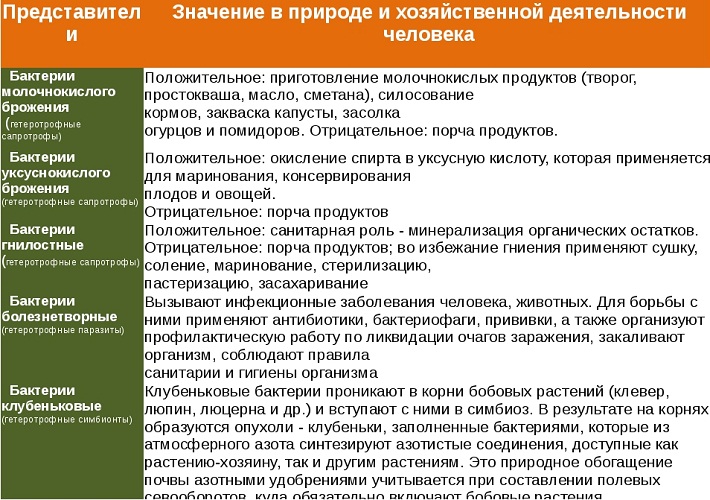
- Due to the presence of bacteria in all areas of human life, their constant interaction with a person occurs. Most bacteria in the body are neutralized by the protective effect of the immune system, and some forms are useful.In fact, the relationship between bacteria and people is thin and complex.
- First of all, we must understand that Bacteria have been already more than 3.5 billion years!And since then almost nothing has changed. Bacteria are responsible for the cycle of carbon and nitrogen in soils and water sources (along with mushrooms).
- The intestines usually contain up to 2 kg of bacteria,which absorb a large amount of nutrients (mainly vitamins and proteins).
- Many drugs and food additives are currently partially or completely synthesized by bacteria(for example, insulin).
- Most of the oxygen that you breathe is produced in the ocean by many bacteria.
- Many fermented foods are prepared with bacterial leashes, such as yogurt, cheese, bread, salted cucumbers, vinegar.
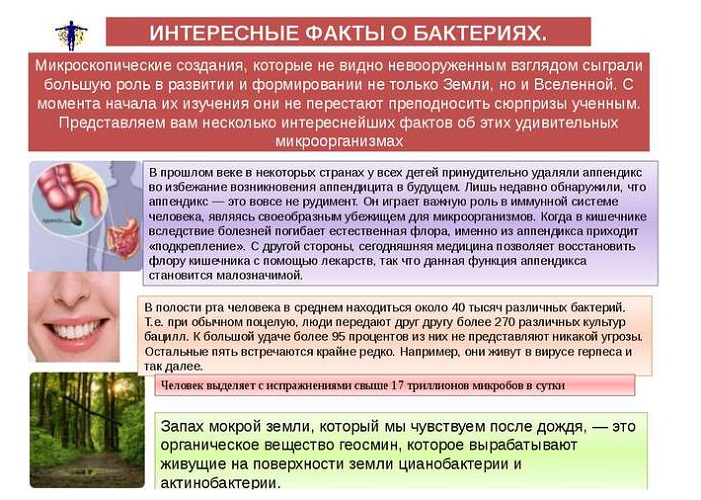
We are sure that you see them differently now!
Bacteria and their significance in human life
The poor role of bacteria:
- Bacteria cause many diseases and wound infections. That is why we have an immune system to combat these infections, as well as free access to antibiotics to help our immune system get rid of infection.
A good role of bacteria:
- Bacteria that colonize our intestines, Called by intestinal microbiota are beneficial. They help reduce the consumption and assimilation of food that we eat to provide the body with nutrients and energy.
- Some of these bacteria in the lower intestine ferment carbohydrates, which are not completely digested in the upper intestine. The goal here is to restore energy, which otherwise would be lost.
- Some other bacteria in the intestines really participate in the synthesis of vitaminsK. and V.
When the balance of these “good” bacteria is violated by “poor” forms, digestion of food changes, and you can get diarrhea.
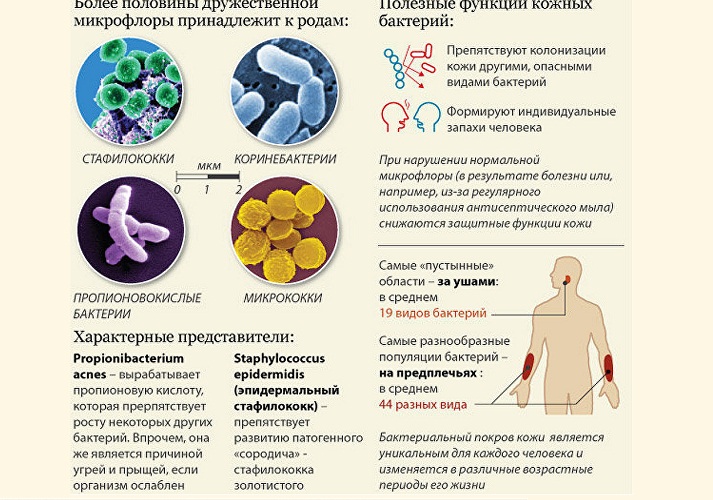
Bacteria and their benefits for human health
- This is a very broad question. Bacteria serve as many goals: From symbiotic relations with other forms of life, including people, to the production of some important drugs and products that we eat.
- They can be good or bad for us (mainly good) almost everywhere and in everything. In fact, People have more microorganisms that inhabit our bodies than in our own cells.
- You would not be alive without bacteria! Your heart will not be able to develop healthy red blood vessels without them, your bones will be too brittle, and they will break when walking. And you would probably be dead from a cold or influenza if there were no bacteria in your body.
Harmful bacteria
- Only a small handful of known bacteria can cause a disease. These bacteria are called pathogenic.
- Pseudomonas bacteria have some natural resistance to antibiotics, which is aggravated by some drugs. They are a common nosocomial infection and can hit wounds and respiratory tract.
- To cause the disease, bacteria must penetrate the cells of a living organism.Although most bacteria will not be able to penetrate into another living organism, and many other bacteria are neutralized by our immune system. But there are forms that our systems are still amazing. But once again we focus that this is only a small part!

Useful bacteria in the household
- People have been using bacteria for a long time When creating food.The main such products are salty cucumbers, yogurt, cheese, vinegar and soy sauce, as well as wine.
- We can also use bacteria To destroy the pollution of our wastewater and the cleaning of oil spills.They generally play an important role in cleaning!
- Escherichia coli bacteria (E. coli) It is a rod -shaped bacterium that lives in the intestines of warm -blooded animals. This is an important tool in modern biotechnology, and it is often used in laboratories of molecular biology due to the ease of cultivation and rapid growth.
- Scientists use E. coli for working with DNA and proteins of other organisms. Usually these are harmless bacteria that live in the lower part of the intestine, although some strains of this bacteria can cause intestinal infections, urinary tract and other parts of the body.
- Many bacteria grow very quickly - Under ideal conditions, the intestinal stick can double its amount in 20 minutes. This makes them very useful tools in molecular biology and biochemistry. Since they can be manipulated much faster than more complex and slower growing organisms.
- We can manipulate bacteria for growing a protein of interest, such as insulin, and then grow them in large vats to produce a large amount of the desired protein. This is like the most easy option.
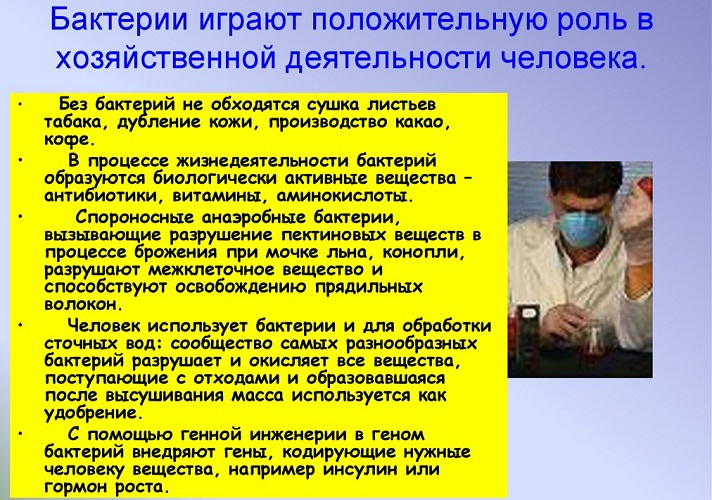
Nodule bacteria
- Microorganisms belonging to the genus Rhizobium ("living at the roots" translated from Greek) are called nodule. Their feature is that They are built into plants through the root system and live in them.
- It is important that these bacteria are not parasites, but on the contrary, they are very important. Nodule bacteria is an advantage for the whole flora, and Their interaction and existence on mutual benefit is called symbiosis.
- The bacteria of root nodules (RNB) or “rhizobia” are a type of bacteria that contribute to plant growth, which are characterized by their ability Bind nitrogen for the host plant.Moreover, they record almost 65% of nitrogen used for sustainable agricultural production.
- The bacteria of root nodules (RNB) are free -lived soil bacteria that are able to form nitrogen -fixing symbiosis with plants. And for centuries were used To improve soil fertility and agricultural productivity.

Popular forms of bacteria: bacilli, coks and spirals
There are three main forms of classic bacteria - rod -shaped bacilli, rounded cocci and curved spirals.
- Bacilli and other subspecies belong to the bacterial family. The key feature of this group is adaptation to extremely low temperatures or the absence of water permanent disputes (endospor) in order to survive in such adverse living conditions.
- The sticks include our intestinal bacterium Escherichia Coli, the pathogen of tetanus, diphtheria, tuberculosis and numerous plant diseases, such as fiery disease on a pear and apple, as well as mucous rotten a tomato and banana. Their role is obvious - the effect of destruction!
- Bacilli form permanent cells (disputes) in adverse conditions in the open air.
It is important that all bacilli are bacteria, but not all bacilla bacteria.
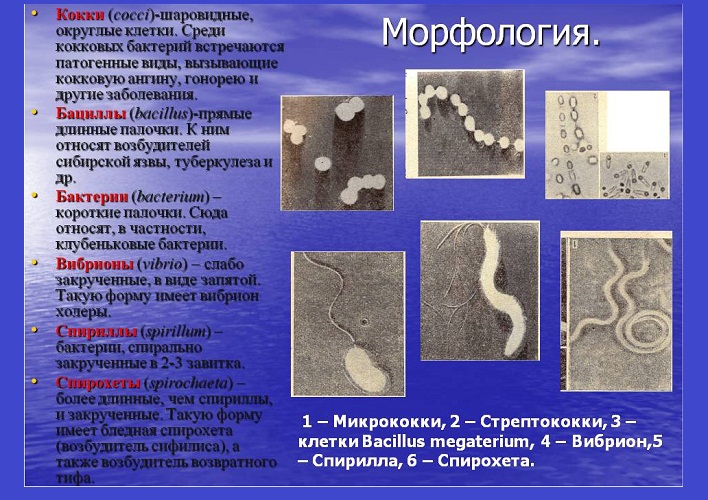
Pathogenic (pathogenic) bacteria in human life
Bacteria, which, when entering the body, can cause a disease are called pathogenic bacteria. Of course, these are bad bacteria. They spread with physical contact, through the soil, air and even water.
- Some pathogenic bacteria were known for a long time:
- Corynebacterium Diptheriae causes diphtheria
- Shigella causes dysentery
- Mycobacteria of tuberculosis causes tuberculosis in people
- Coxiella Burneti causes fever in humans
Salmonella and her species
- Salmonellosis is an infection caused by many types and strains of Salmonell. Salmonellosis causes serious concern in the dairy industry, especially in the sectors of the production of cheese and milk powder.
Interesting Facts. The first bacterial disease that has ever been discovered was the anthrax (caused by Bacillus anthracis) of cattle and sheep in 1876. The opening of the Siberian ulcer in cattle was immediately after the opening of the bacterial burn of fruit crops of the pears and apples (caused by Erwinia AMYLOVORA) .
Pathogenic bacteria are very dangerous, they can cause not only a serious disease, but even death in people, animals and plants.
- Another group of bacterial pathogens is difficult or impossible to cultivate in the laboratory, and they are called Fleased vascular bacteria.They grow in the tissues of xylem or floe and prevent the transfer of water and nutrients in plants!
- Thanks to
- the discoveries of scientists every year are more and more types of these bacteria are known. And knowing the type of bacteria, the scientists are working on the development of drugs and drugs for the treatment of diseases caused by pathogenic bacteria.
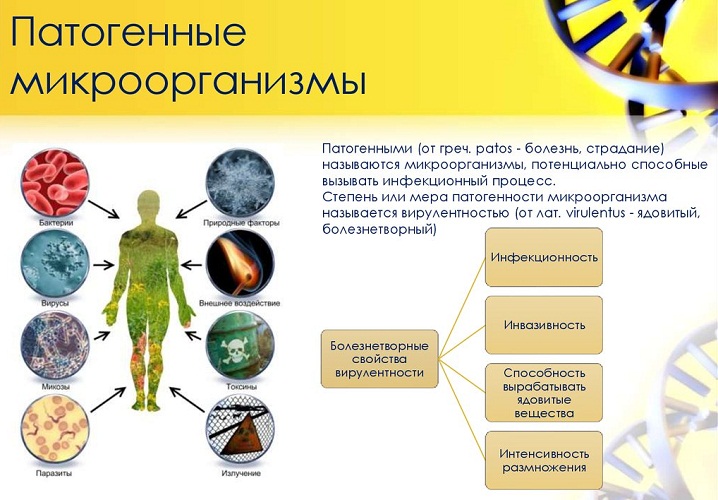
Bacteria play an important role in nature!
- The environmental system, both on land and in water, depends on the activity of bacteria. The cycle of nutrients, such as carbon, nitrogen and sulfur, ends with their continuous labor.
- Organic carbon In the form of dead and rotting organisms, carbon dioxide in the atmosphere would quickly deplete, if not for active “degraders”. Perhaps it doesn’t sound so bad for you. But you must understand that without carbon dioxide in plants there will be no photosynthesis and food!
- When organisms die, carbon contained in their tissues becomes inaccessible to most other living creatures. Decomposition- This is the destruction of these organisms, the release of nutrients back into the environment. And this is the merit of one of the most important roles of bacteria.
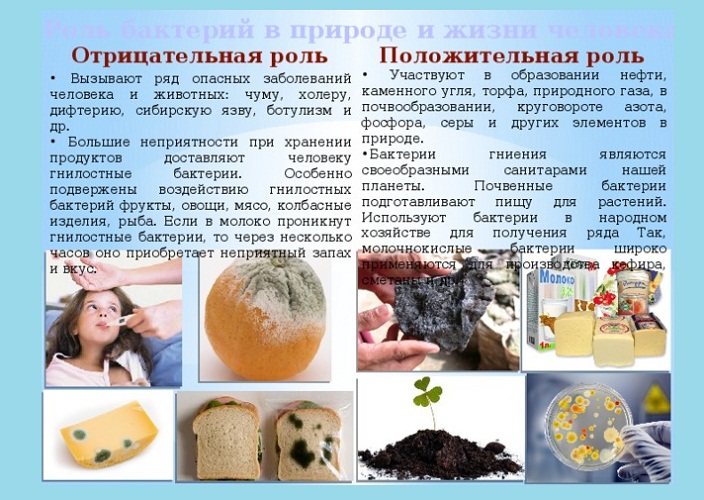
- Nitrogen movement It is another important type of bacteria. Plants rely on nitrogen from the soil for their health and growth. After all, they cannot absorb it from gaseous nitrogen in the atmosphere.
- The main way to obtain nitrogen for them is to fix nitrogen bacteria, such as Rhizobium and cyanobacteria (Anabaena, Nostoc and Spirulina). These Bacteria turn gaseous nitrogen into nitrates or nitrites as part of their metabolism.And already received products fall into the environment.
- Some plants, such as liver, saglitors and legumes, use a special advantage of this process, changing their structure to accommodate in their own fabrics.
- Other rotary bacteria are metabolized in the opposite direction, Turning nitrates into gaseous nitrogen or nitrogen oxide. When colonies of these bacteria appear on agricultural land, they can deplete nutrients in the soil and impede the growth of agricultural crops.
As you can see, bacteria are found in every environment on Earth: soil, rocks, oceans and even arctic snow. Some live in or on other organisms, including plants and animals, as well as people. Relatively few bacteria are parasites or pathogens that cause diseases, and most bacterial forms are even very important and useful.

